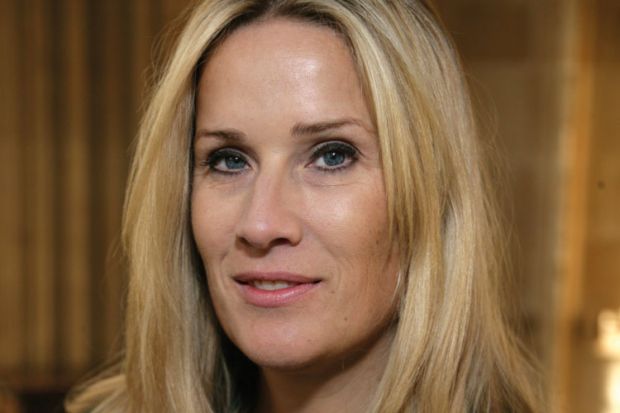When Nicky Morgan, the education secretary, suggested last year that teenagers should be wary of studying the humanities, since it was the STEM (science, technology, engineering and maths) subjects that “unlock the door to all sorts of careers”, one of the most eloquent responses came from Sarah Churchwell. She has since become the first chair in public understanding of the humanities at the University of London’s School of Advanced Study. So what does she hope to make of this opportunity?
Professor Churchwell starts, she said, from the notion that “the humanities mean anything that is researching, studying, contributing to the knowledge of the human-made world. You may then want to challenge some of the ways that people construe those activities. But that’s a different question from whether we should pursue knowledge in those areas – of course we should.”
Broadly a supporter of the American liberal arts model, Professor Churchwell, formerly professor of American literature and public understanding of the humanities at the University of East Anglia, believes that it would be a good thing for “scientists [to] have a passing knowledge of their literary tradition and English students [to] have a passing knowledge of physics”. Where skill shortages arise, she would “like to see governments creating flexible bursaries designed to incentivise study in the areas we think are under-enrolled and need more work in. You don’t have to create an engineering bursary in perpetuity but a flexible educational bursary, and in the future you might want to incentivise doctors or English teachers. That would be about recognising the fundamental and inherent value of all the subjects of human research and knowledge.”
Although wary of talk about “threats to the humanities”, which can “become inflammatory very quickly”, Professor Churchwell warned that “we have to be sure we don’t allow ourselves, unthinkingly and unwittingly, to slip into saying ‘the humanities aren’t very useful, what they really are is a luxury’. That’s where a lot of the conversation is trending, at a time when our presumptions are very utilitarian and very short-termist.”
‘Opening doors to the ivory tower’
Her new “public understanding” role, she continued, is “about opening the doors to the ivory tower and getting ideas out there...I’m not going to be prescriptive about which topic is going to be worth sharing. It’s about finding the inherent value and interest in the ideas that people are pursuing – in 18th-century theatre or whatever niche topic – and showing people why that’s interesting.”
To achieve such goals requires “institutional and structural incentives which allow people to do – and reward people for doing – things other than publishing in high-impact journals”, she said. It means “encourag[ing] people not to take pride in being unable to communicate to generalists, not to wrap themselves up in the kind of intellectual arrogance that says they cannot have any other kinds of conversation”.
And it also means facing up to some of the problems of much academic writing, arising out of what Professor Churchwell calls “the specialisation and over-technical, exclusionary language that has been employed for the past 40 years or so…There are feminists who produce feminist theory that they say is about egalitarianism and equality and democracy and changing the lives of real women, and then write in ways that nobody without a PhD can understand…There’s a dishonesty or at least a cognitive dissonance. Don’t claim you are changing the world if only four people are reading your article.”
Crossover books
When interviewed in Times Higher Education’s “HE & me” slot last year and asked which book would win her “academic Booker of Bookers”, the former Man Booker prize judge replied: “I mostly hate books by academics. Michael Gorra’s Portrait of a Novel: Henry James and the Making of An American Masterpiece is pretty fabulous; let’s give it to him.”
This may have been meant partly as a joke, so it seemed worth checking just what she feels about the current state of academic writing.
Professor Churchwell admitted that she does “struggle with recommending to non-academics books which are written in an academic language”. Yet she praised “crossover” books such as those James Shapiro has written about different years in Shakespeare’s life.
She also mentioned “academic articles which literally changed my life”, such as Susan Bordo’s “Reading the slender body”, which was “one of the first to take on the objectivisation and sexualisation of women in popular culture and the stuff we are very conscious of now about body-shaming…That was incredibly important for me personally and for a lot of my friends as well – we came of age in very bulimic times.” Professor Churchwell added that “Michel Foucault is incredibly influential to my thinking and the way I look at the world…I’m not sitting here repudiating academic work, as a self-hating academic.”
POSTSCRIPT:
Print headline: ‘Don’t say you are changing world through four readers’
Register to continue
Why register?
- Registration is free and only takes a moment
- Once registered, you can read 3 articles a month
- Sign up for our newsletter
Subscribe
Or subscribe for unlimited access to:
- Unlimited access to news, views, insights & reviews
- Digital editions
- Digital access to THE’s university and college rankings analysis
Already registered or a current subscriber? Login




